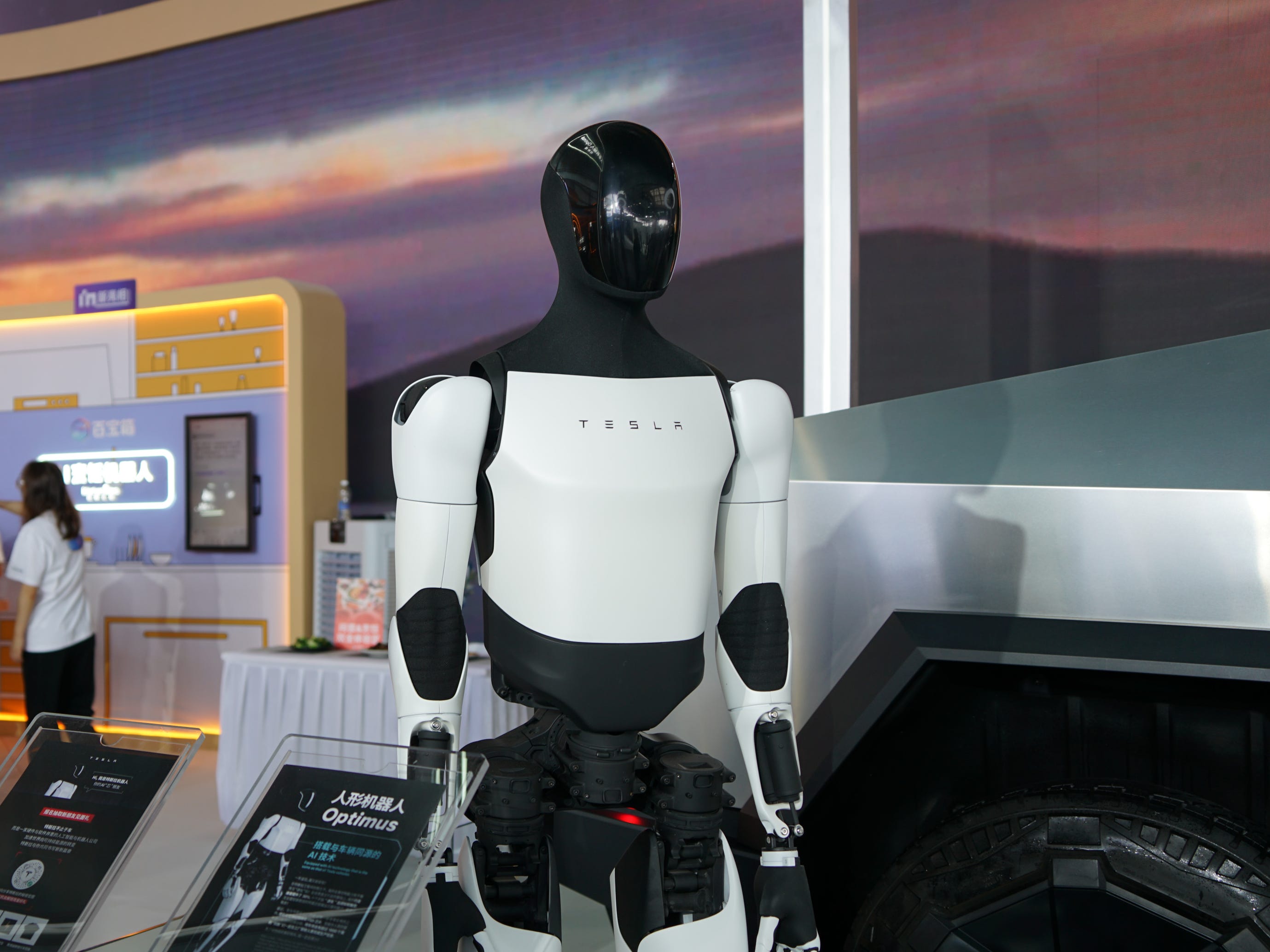
CFOTO/Future Publishing via Getty Images
Tesla’s Optimus production is getting squeezed by President Donald Trump’s trade war.
Production of the humanoid robot could face some delays as Tesla deals with challenges, such as convincing China that some of the robot’s parts would not be used for military purposes.
Elon Musk said during Tesla’s first-quarter earnings call on Tuesday that Optimus production “was affected” by a supply chain issue in China. He said Tesla uses rare-earth magnets sourced from China for the actuators in the robot’s arms.
The issue is that China recently started to require an export license for some rare-earth elements. Tesla also said in the earnings call that it’s tried to find “alternative sourcing” for rare-earth magnets for years.
“Tesla as a whole does not need to use permanent magnets, but when something is volume constrained, like an arm of the robot, then you wanna try to make the motors as small as possible,” Musk said.
The CEO said that the magnets are “just going into a humanoid robot,” which is not a weapon system. However, the magnets can be used for a range of purposes, including building military weapons like missiles. Because of that, Musk said China is looking to be convinced that any magnets they supply to Tesla won’t find their way into a weaponized system or robot.
“China wants some assurances that these are not used for military purposes, which, obviously, they’re not,” Musk said.
Beijing recently paused certain rare-earth element exports in response to Trump tariffs, which the President announced would “come down substantially” on Tuesday. In addition to impacting Tesla’s Optimus production, the restriction could affect several industries dependent on rare-earth elements, including automakers and semiconductor manufacturers.
Musk said that Tesla is “working through” the supply chain issue with China, and will “hopefully” get a license to use the magnets. He said he’s confident that the company will be able to solve the issue and produce thousands of robots by the end of the year. He also said Tesla expects to scale Optimus “faster than any product,” and feels confident the automaker will produce a “million units per year” in under five years.
That’s mostly in line with previous projections. Musk said during an all-hands employee meeting last month that Tesla will hopefully produce around 5,000 Optimus robots in 2025, and it aims to have enough parts to make 10,000 or 12,000 of the robots.
Musk added during Tuesday’s call that “Optimus production will move as fast as the slowest and least lucky component” involved in the product. As a new product, Tesla is dealing with “like 10,000 unique things,” as it builds the humanoid robots.
“Anyone who tells you they can predict with precision the production ramp of a truly new product doesn’t know what they’re talking about,” Musk said.
The post Elon Musk says China wants assurances that magnets for Tesla’s humanoid robot won’t be used for ‘military purposes’ appeared first on Business Insider.




